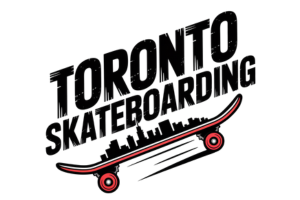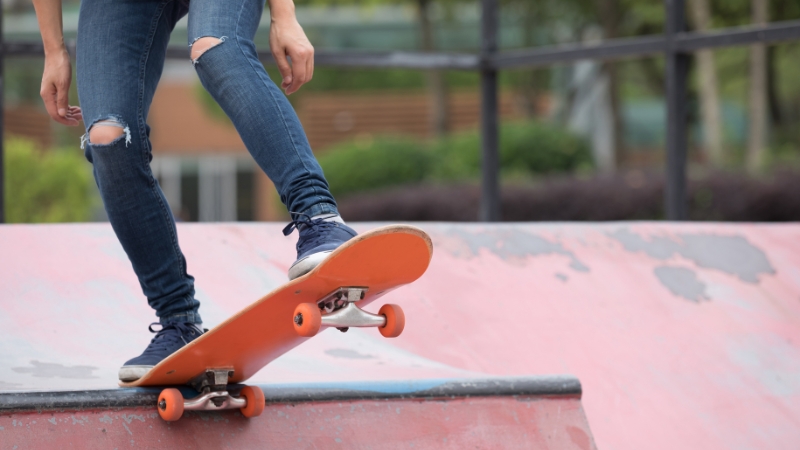Starting your skateboard journey can feel overwhelming, especially when you need to find the right place to practice. Toronto offers incredible spots for new skaters to build confidence without facing intimidating obstacles.
The best skateparks in Toronto for beginners provide safe, supportive environments where you can master fundamental skills before tackling advanced features.
According to the Canadian Amateur Skateboarding Association, proper park selection reduces injury risk by 67% for new skaters. My first day on a board happened at one of Toronto’s beginner-friendly spots, and I still remember the excitement of landing my first kickturn without falling. You’ll discover similar moments at the right parks throughout the city.
Each location we’ll explore offers unique advantages for newcomers. Some feature mellow slopes perfect for balance practice, while others provide expansive flat areas ideal for basic trick development. Your skateboarding adventure begins with choosing parks designed for learning, not just showing off.
Why Beginner-Friendly Parks Matter for New Skaters
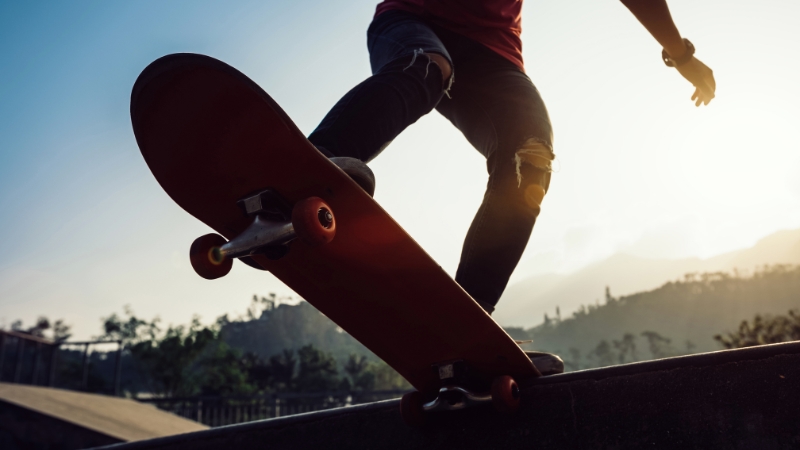
Safety statistics reveal crucial insights about park selection. Research published in Injury Epidemiology shows that 1/3 of all skateboarding injuries occur in a beginning skater’s first weeks of skating.
The same data indicates that only 5% of all skateboarding injuries occur in skateparks, making supervised park environments significantly safer than street skating.
Beginner skateparks in Toronto locations focus on gradual skill progression rather than extreme challenges. Easy Skateparks Toronto provides essential features like wide ramps, gentle transitions, and obstacle-free practice zones. Your confidence grows naturally when parks match your current ability level.
Most Toronto skateparks with flat ground offer perfect conditions for basic stance work and pushing practice. The smooth concrete surfaces eliminate variables like cracks, debris, or uneven pavement that cause beginner accidents. Professional park design considers sight lines, traffic flow, and skill separation to create optimal learning conditions.
Experienced skaters often mentor newcomers at community-focused parks. I’ve witnessed countless moments where veteran boarders offer advice, demonstrate techniques, and provide encouragement. The best places to skate in Toronto foster inclusive environments where everyone progresses together.
4 Top Beginner-Friendly Skateparks in Toronto
1. Lake Wilcox Park, Richmond Hill
Lake Wilcox stands out among Toronto skateboarding spots for newbies because of its family-oriented atmosphere.
It’s particularly popular with families and is known as a kid- and beginner-friendly spot. The park features gentle banks and small quarter pipes perfect for learning basic transitions.
Key Features for Beginners
The surrounding parkland offers additional benefits. Parents can supervise easily while kids explore skating fundamentals.
Beach volleyball courts and playgrounds nearby mean families can enjoy full-day visits. My younger cousin learned his first drop-in here, and the supportive community made all the difference.
2. East York Skatepark
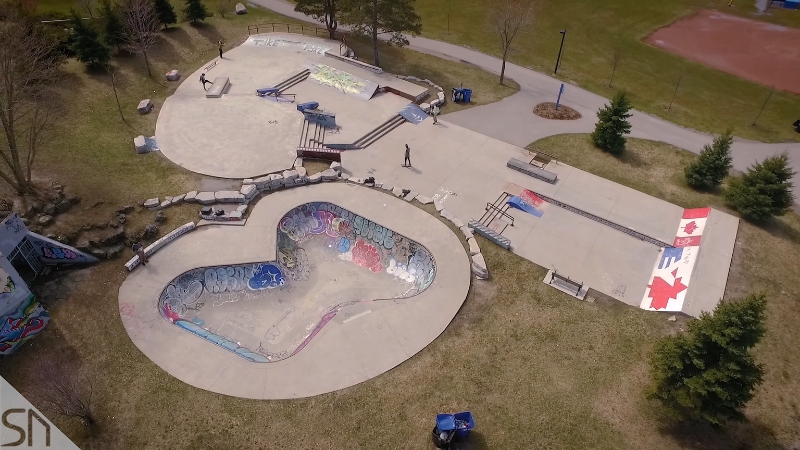
East York Skatepark is fresh, well-maintained, and has everything from beginner-friendly areas to challenging obstacles for the more daring. The thoughtful design separates learning zones from advanced sections, allowing new skaters to practice without interference.
Beginner Features
The park’s layout encourages natural progression. Beginners start on flat ground, advance to small banks, then gradually tackle mini ramps.
Street elements include low ledges and manageable rail heights, perfect for learning fundamental tricks.
3. Underpass Skatepark
View this post on Instagram
Located beneath the Don Valley Parkway, Underpass offers unique advantages for beginner development.
The Underpass Skatepark in Toronto is a unique and vibrant skateboarding destination for enthusiasts of all levels. Weather protection makes year-round skating possible, extending practice opportunities during Toronto’s harsh winters.
Learning Advantages
The concrete bowl system includes shallow sections ideal for learning carving and pump techniques. Deeper areas challenge intermediate skaters without overwhelming beginners.
Community mentorship flourishes here, with experienced skaters regularly sharing knowledge.
4. Weston Lions Park
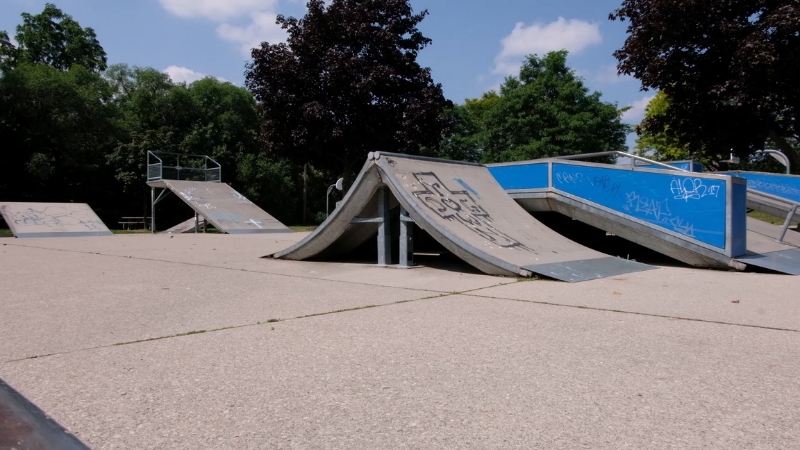
Official city documentation describes Weston Lions as a modular community skatepark featuring various ledges, rails, banks, quarter pipes and a spine-ramp.
The modular design allows for versatile practice sessions and skill development across multiple skating disciplines.
Beginner Assets
The spine ramp provides excellent transition practice for skaters ready to advance beyond flat ground. Banks offer a gentle introduction to slope riding without steep drop-ins.
Essential Safety Guidelines for New Skaters
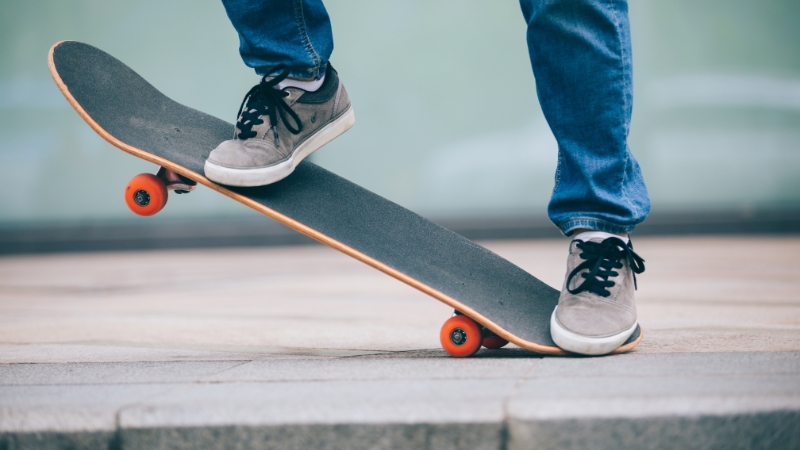
Protective equipment makes the difference between minor tumbles and serious injuries.
According to the American Academy of Orthopaedic Surgeons, approximately 70,000 injuries requiring a visit to the emergency department occur every year from skateboarding.
Proper gear dramatically reduces emergency room visits.
Required Safety Equipment
- ASTM-certified helmet (most critical protection)
- Knee pads for transition skating
- Wrist guards for fall protection
- Proper skating shoes with grip soles
Helmet selection requires careful attention to fit and certification standards. A loose helmet provides minimal protection during impacts.
Quality knee pads allow confident progression on transitions without fear of painful crashes. Wrist guards prevent the common instinct to break falls with outstretched hands.
Park Etiquette Rules
- Wait your turn at popular obstacles
- Call “dropping in” before taking your run
- Help maintain park cleanliness
- Respect all skill levels and age groups
Good etiquette creates positive environments where everyone can learn effectively. Experienced skaters appreciate beginners who follow basic courtesy rules.
Park communities thrive when mutual respect guides interactions.
How to Choose Your First Practice Location
Location selection impacts your entire skating development. Where to learn skateboarding in Toronto depends on your specific goals, transportation options, and comfort level.
Different parks serve different learning styles and progression speeds.
Evaluation Criteria
Factor
Importance
Questions to Ask
Skill Level Match
Critical
Are the obstacles appropriate for your current abilities?
Safety Features
Essential
Does the park have good sight lines and separation?
Community Atmosphere
Important
Do other skaters seem welcoming and supportive?
Maintenance Quality
High
Are surfaces smooth and free of hazards?
Accessibility
Moderate
Can you reach the park easily and regularly?
Personal comfort significantly influences learning speed. Some beginners prefer quieter parks with fewer observers, while others thrive in busy, social environments.
Visit potential locations at different times to assess crowd levels and community dynamics.
Transportation logistics affect practice consistency. Parks requiring long commutes reduce session frequency, slowing skill development. Nearby locations enable regular practice, accelerating your progression timeline.
Skill Progression Timeline at Beginner Parks
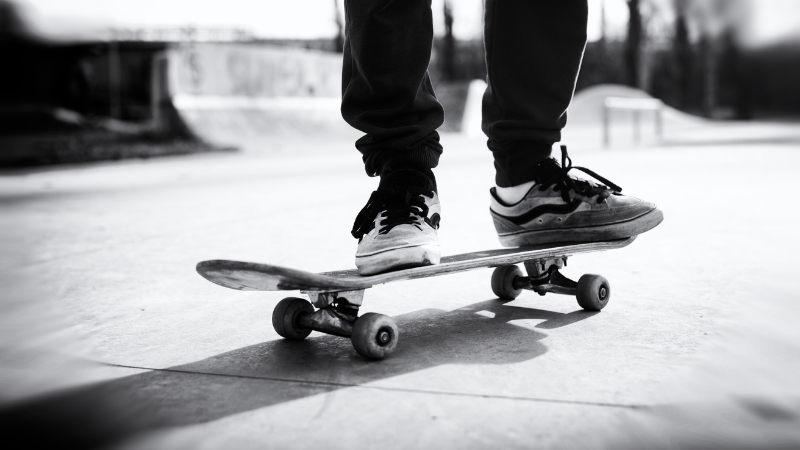
New skaters often wonder about realistic timelines for basic skills. According to skateboarding education research, skateboarding can be an even safer activity when taught properly in a controlled environment.
Month 1: Foundation Building
- Board familiarization and balance
- Basic pushing and stopping techniques
- Comfortable riding on flat surfaces
- Understanding park layout and safety zones
Month 2-3: Basic Maneuvering
- Kickturns and carving motions
- Small bank navigation
- Simple obstacle approach
- Confidence building on varied surfaces
Month 4-6: Transition Introduction
- Mini ramp dropping in
- Basic pumping techniques
- Low obstacle navigation
- Community integration and etiquette mastery
Individual progression varies significantly based on practice frequency, natural ability, and instruction quality.
Some skaters master basics within weeks, while others need months to build confidence. Consistent practice at appropriate parks accelerates skill development regardless of natural talent.
Seasonal Considerations for Toronto Skaters
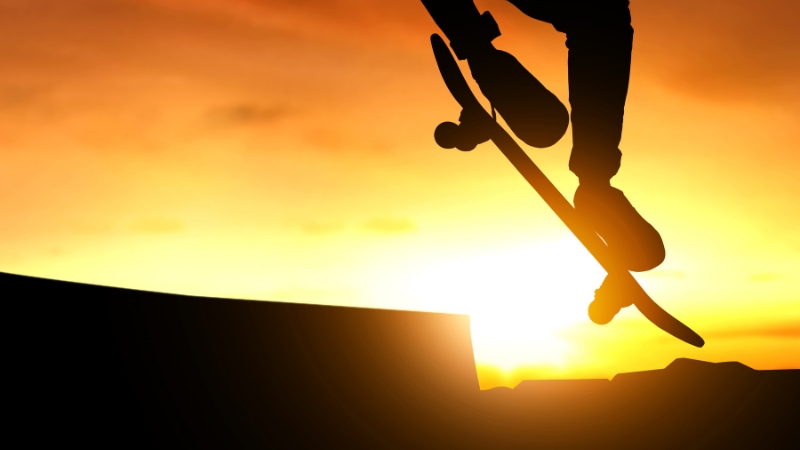
Toronto’s climate presents unique challenges for year-round skating. Safe skateparks in Toronto adapt to weather conditions, but outdoor facilities close during the winter months.
Skateparks with mellow features Toronto often provide the most comfortable learning environments during transitional seasons.
Spring Skating (March-May)
- Parks reopen after winter maintenance
- Fewer crowds than summer months
- Cool temperatures ideal for physical activity
- Fresh motivation after indoor winter months
Summer Peak Season (June-August)
- All outdoor facilities fully operational
- Highest community activity and events
- Early morning or evening sessions avoid heat
- Maximum mentorship opportunities available
Fall Preparation (September-November)
- Ideal weather conditions for intensive practice
- Preparation for indoor winter training
- End-of-season skill assessment opportunities
- Equipment maintenance before storage
Winter options include indoor facilities and covered parks like Underpass. Many skaters use the winter months for strength training, video study, and equipment preparation. Spring return feels exciting after months of limited outdoor practice.
Final Thoughts on Toronto Skate Park Selection
@whoscar3d Skate in Toronto 😎 #skate #toronto #italy ♬ EVIL J0RDAN – Playboi Carti
Your skating journey begins with choosing the right environment for growth and learning. Top beginner-friendly skateparks in Toronto provide safe spaces where fundamental skills develop naturally. Each location offers unique advantages, but all share commitments to community support and skill development.
Remember that every expert skater started exactly where you are now. The best skateparks for beginners focus on progression, safety, and community rather than intimidation or extreme challenges. Your first successful kickturn, your first dropped ramp, your first landed trick – all happen at parks designed for learning.
Toronto’s skating community welcomes newcomers with enthusiasm and support. Parks become gathering places where friendships form and skills develop together. The city’s diverse skateboarding spots for newbies ensure everyone finds their perfect learning environment.
Start with one park that matches your comfort level and transportation needs. Regular practice at familiar locations builds confidence faster than jumping between multiple venues. As skills develop, explore additional parks to experience different obstacle types and community dynamics.
The learn to skate in Toronto journey continues long after mastering basics. Advanced skaters still return to beginner-friendly parks for fundamental practice and community connection.
Your relationship with skateboarding and park communities will evolve, but the foundation built at beginner parks remains crucial throughout your skating life.
